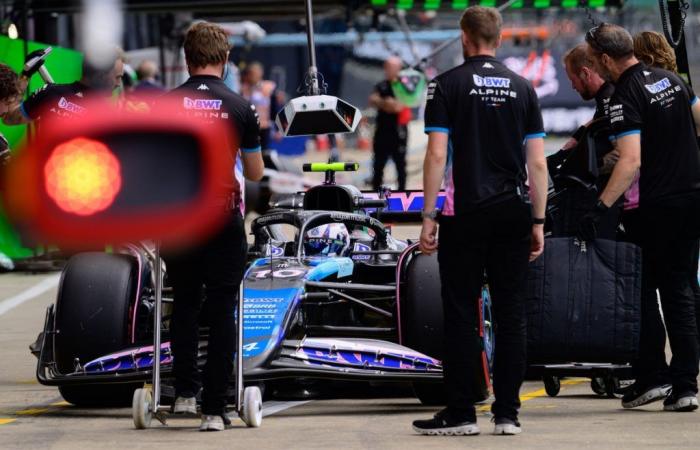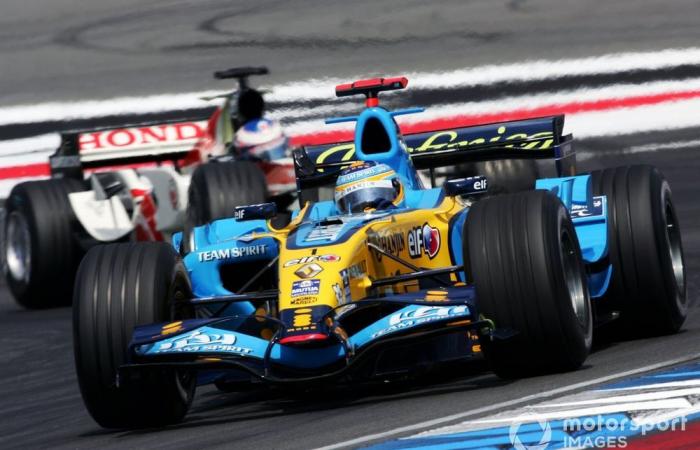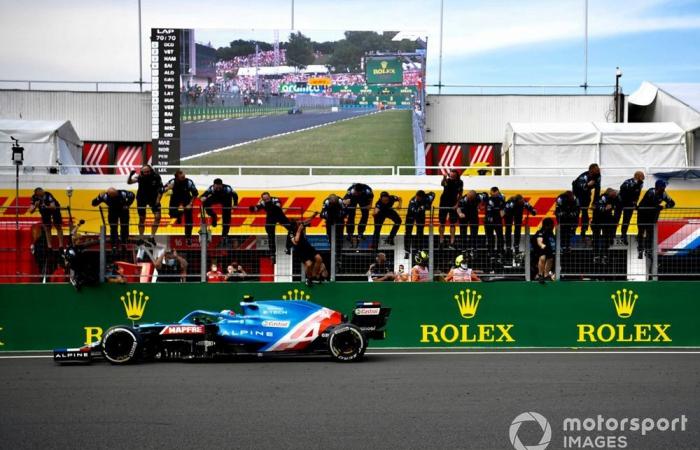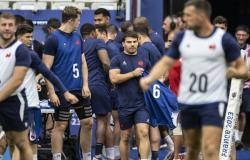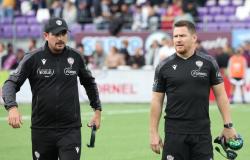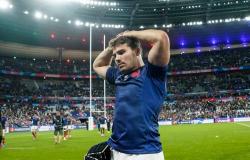As had been anticipated for several months, the Renault/Alpine F1 engine project for 2026 was officially abandoned and the Viry-Châtillon site, the current factory producing French power units, will host a “centre d’excellence” working on several projects.
The information was confirmed via a press release detailing the Viry-Châtillon transformation plan which indicates in particular that the “transformation of the site will involve the reallocation of resources and skills currently working on the F1 engine”.
Further on, it is stated: “At the end of the consultation process with the social partners, during which the discussions were constructive and an independent expertise could be carried out, Alpine management confirms its project to transform the site into a center of excellence in engineering and high technology, from the end of 2024. Viry’s F1 activities, excluding the development of a new engine, are maintained until the end of the 2025 season.”
As part of this plan, it is specified that “Hypertech Alpine” will notably include a monitoring unit focusing on F1: “Alpine has made the decision to create an F1 monitoring unit which will aim to maintain the knowledge and skills of employees in this sporting discipline, and to remain at the forefront of innovation, at the service of the various Hypertech Alpine projects. .”
It is therefore the end of a series which will have lasted more than three months and therefore clearly opens up to a customer engine for the Alpine team from 2026, a priori by Mercedes, but also the announced end of an involvement of Renault in F1 engines which will have been almost continuous since 1977.
From June, Motorsport.com revealed to you that the subject was on the table on Renault’s side and that the then director of the Alpine team, Bruno Famin, had already discussed the possibility of turning to a customer engine with other engine manufacturers. The revelation of this project also coincided with the return to business of Flavio Briatore at Enstone, made official a few days after the publication of this information.
In the weeks and months that followed, Alpine management made no secret of the fact that the pure and simple end of the 2026 engine project was indeed envisaged, without however being recorded. Faced with this situation, Alpine employees at the Viry-Châtillon engine plant started a peaceful mobilization during the summer, via the Social and Economic Council (CSE), which set in motion a communication plan from the start. end of August and the return of the summer break, including a protest in the stands and at the factory, without disruption of activities, during the Italian GP.
On September 20, a delegation from the Renault Group, including Luca de Meo, met these staff representatives, who proposed a plan to maintain engine activity in F1. Then, on the 26th, four days before the decisive vote on Monday in the board of directors, the employees once again sounded the alarm in the absence of a response to their proposal.
Renault, the planned end of a historic engine manufacturer
Jean-Pierre Jabouille at the wheel of the 1977 Renault RS01.
Photo de: Sutton Images
The abandonment of in-house power units by Renault marks the end of a long and almost uninterrupted history between F1 and the French engine manufacturer since 1977.
Le Losange actually arrived in the discipline in the second half of the 1970s, as a pioneer of turbo engines, which would revolutionize the discipline. Paying the price of this new technology with numerous reliability problems, the brand’s single-seaters were quickly nicknamed “yellow teapots”, because of the white smoke they often gave off. However, between 1977 and 1986, Renault engines would contribute to a total of 50 poles and 20 victories, even fighting for world titles in the early 1980s, before a complete withdrawal from F1 (the only real one since 1977), in 1987 and 1988.
However, it was from 1989 that Renault entered one of its most prosperous periods, by supplying engines to the Williams team. After gaining momentum during the first three seasons, the alliance would win five of the six constructors’ titles on offer between 1992 and 1997, powering some of the most iconic F1 cars in history. The only title escaping Williams will still be won with a Renault engine, since Benetton will also be equipped by the French brand between 1995 and 1997.
The end of 1997 will mark the end of Renault’s involvement as an engine manufacturer in its own right, even if, in fact, the blocks badged Mecachrome, Playlife and Supertec which equipped Williams, Benetton and Arrows between 1998 and 2000 were indeed Renault engines. It was not until 2001 that Renault made its return as an official engine manufacturer, through the acquisition of Benetton, then as a full-fledged manufacturer from 2002.
Fernando Alonso, driving the Renault R25 and R26 (photo), had the team’s heyday in the mid-2000s.
Photo de: Gareth Bumstead
It was during this period that Renault, knocking Scuderia Ferrari off its pedestal, won its only two constructors’ crowns (2005 and 2006), accompanied by Fernando Alonso’s drivers’ titles. After the latter’s departure, performances declined before the team’s reputation was greatly damaged by the organized cheating of Crashgate. During the 2008 Singapore GP, on the orders of Flavio Briatore and Pat Symonds, Nelson Piquet Jr intentionally crashed to favor the race of the returning Alonso, who would cross the finish line as the winner. The affair did not really break out until a year later but was followed by several withdrawals of sponsors.
At the end of 2009, in the context of this scandal and a financial crisis which has already driven BMW and Honda from the discipline, Renault will abandon its majority stake in the team by selling shares to Genii Capital with a view to 2010, before a total disengagement in 2011.
It is as an engine manufacturer that Renault will find success again, also supporting the rise of Red Bull at the end of the 2000s before collecting all the world titles at stake between 2010 and 2013, in the company of Sebastian Vettel. Despite its role in the success of Red Bull, the frustration of a relationship where the engine manufacturer considers itself too little valued will explode during the start of the era of V6 turbo hybrids.
It must be said that Renault will miss this technological turning point and will never truly manage to be as competitive as Mercedes, Ferrari or Honda. Faced with ever more tense relations between the management of the Austrian team and the French manufacturer, Renault will once again relaunch the project of a factory team, by buying Lotus at the end of 2015. The year 2016 will see the manufacturer return under its proper name, even if in fact the car for this campaign was not designed under his direction, and the engines still supplied to Red Bull until 2018 will be badged “TAG Heuer”.
However, unlike many of its previous stints, Renault will never really manage to get out of the middle of the pack to return to the fight for the title. Chassis and engine will have their share of responsibility in what, at best, could sometimes be described as slow progress but which often looked like stagnation. In terms of results, the best season will be 2018 with fourth place among the manufacturers, even if we will have to wait until 2020 to see the first podiums.
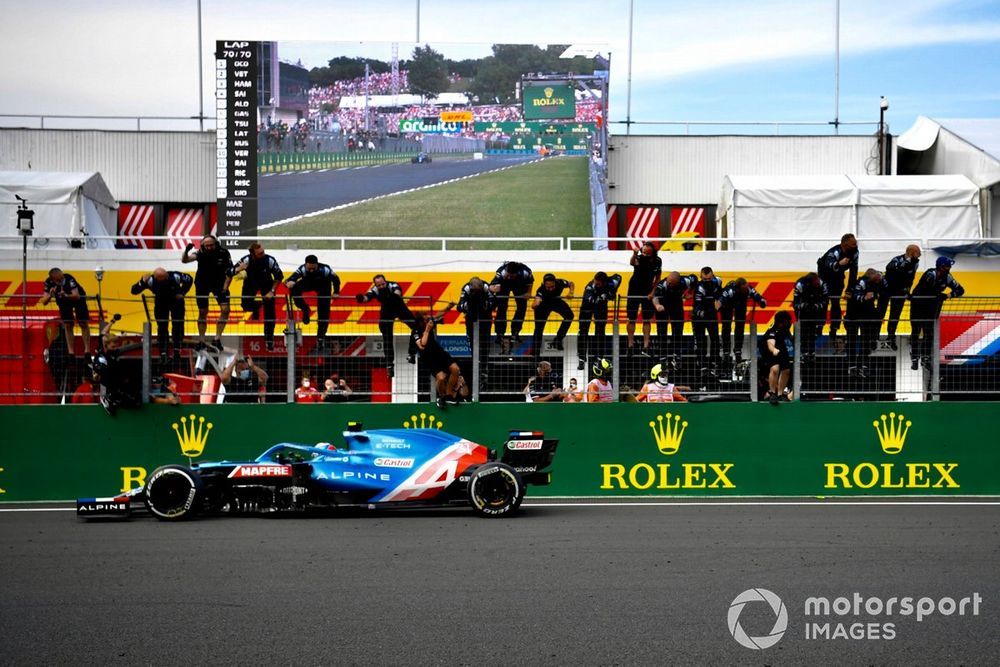
Esteban Ocon’s victory at the 2021 Hungarian GP remains the latest for the Renault Group in F1.
Photo by: Jerry Andre / Motorsport Images
For 2021, Renault decides to change the identity of its team to highlight the prestigious Alpine brand. The single-seaters swap yellow for blue but, in reality, the implication is the same for the French brand. The 2021 season will be marked by Esteban Ocon’s out-of-nowhere victory in Hungary, the first for Alpine as a manufacturer but above all the only one for Renault since its return in 2016, as well as a total of four podiums so far. , as well as a fourth place among manufacturers in 2022 as best final result.

